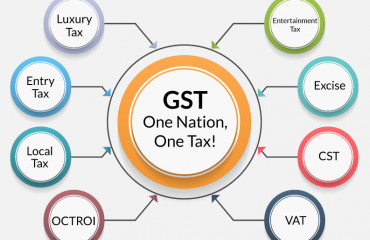
Chhattisgarh Chief Minister Bhupesh Baghel again sought a five-year extension for the compensation to states in lieu of a fall in revenue due to the implementation of Goods and Services Tax (GST).
Chhattisgarh Chief Minister Bhupesh Baghel again sought a five-year extension for the compensation to states in lieu of a fall in revenue due to the implementation of Goods and Services Tax (GST).
The chief minister also called for revising the royalty rates for coal and other major minerals from Chhattisgarh.
He was addressing the meeting of the seventh Governing Council of NITI Aayog chaired by Prime Minister Narendra Modi. Apart from the extension of GST compensation, the minister also asked for the transfer of the amounts collected as an 'additional levy' from coal companies and reimbursement of ₹11,828 crore made by the state government to eliminate Naxalism
"There has been a loss of revenue to states due to the GST tax system and the Centre has not made arrangements to compensate the loss of revenue of about ₹5,000 crore to the state in the coming year, so the GST compensation grant should be continued for the next five years after June 2022," the chief minister was quoted as saying in a statement issued by his government.
During the rollout of GST, the states were assured of compensation for the fall in revenue till June 2022. The compensation amount was also raised by levying a cess on luxury, demerit, and sin goods. This was over and above the 28% tax.
Bhupesh Baghel also said that Chhattisgarh has received ₹13,089 crore less from the central taxes in the Union Budget over the last three years. The situation led to a extreme pressure on the resources of the state government.
He demanded that the complete share of central taxes must be provided to the state. Baghel even asked for ₹4140 crore deposited with the Union Government at the rate of ₹294 per tonne on coal mining from coal block companies. He wants all this money to be transferred to the state government.
The chief minister also called for the revision of the royalty rates as it was necessary for the financial interest of states. He noted that about 65% of the mineral revenue of the state comes from iron ore mines.
He also called for refund of deposits in the New Pension Scheme and ensuring availability of jute gunny bags.
Bhupesh Baghel also suggested that agriculture institutes should be allocated with the responsibility of providing free-of-cost seeds of the newly developed crop variety, mini kits, and breeder seeds on large scale.
He also elaborates on the steps taken by his government like 'Mukhyamantri Vriksharopan Protsaahan Yojana', which creates a provision to provide ₹10,000 per hectare to farmers who cultivate pulses, oilseeds, or do plantation instead of paddy.
The chief minister said "Chhattisgarh is self-sufficient in the production of food grains and has taken many innovative measures to increase the production of pulses and oilseeds in the state".
"Along with the Rajiv Gandhi Kisan Nyay Yojana, Chhattisgarh Millet Mission has also been constituted," Baghel told the meeting according to news agency PTI.
Bhupesh Baghel also took pride in the fact that NITI Aayog has appreciated the performance of aspirational districts of the state. He also asked for relaxation under Forest Conservation Act in setting up 5 MW solar plants in 10 aspirational districts.
"With the objective of providing good quality infrastructure, equipment, educational and co-curricular activities in the government schools, the state government has started Swami Atmanand Excellent English Medium Schools in Chhattisgarh," he said.
Chhattisgarh has won the state clean survey for three consecutive years Baghel pointed out while commenting on the agenda of urban administration. He also mentioned the good work in solid waste management in the urban areas.
Prime Minister Narendra Modi also praised Chhattisgarh's Godhan Nyay Yojana at the NITI Aayog meeting. The PM said that the scheme is in the interest of farmers as vermicompost prepared from cow dung increases the productivity.
Chhattisgarh Chief Minister also talked about the need for MGNREGA in urban areas. He suggested that it should be implemented in cities with a population of less than 20,000 and cities close to rural areas.
